SUMMARY
This is AI generated summarization, which may have errors. For context, always refer to the full article.
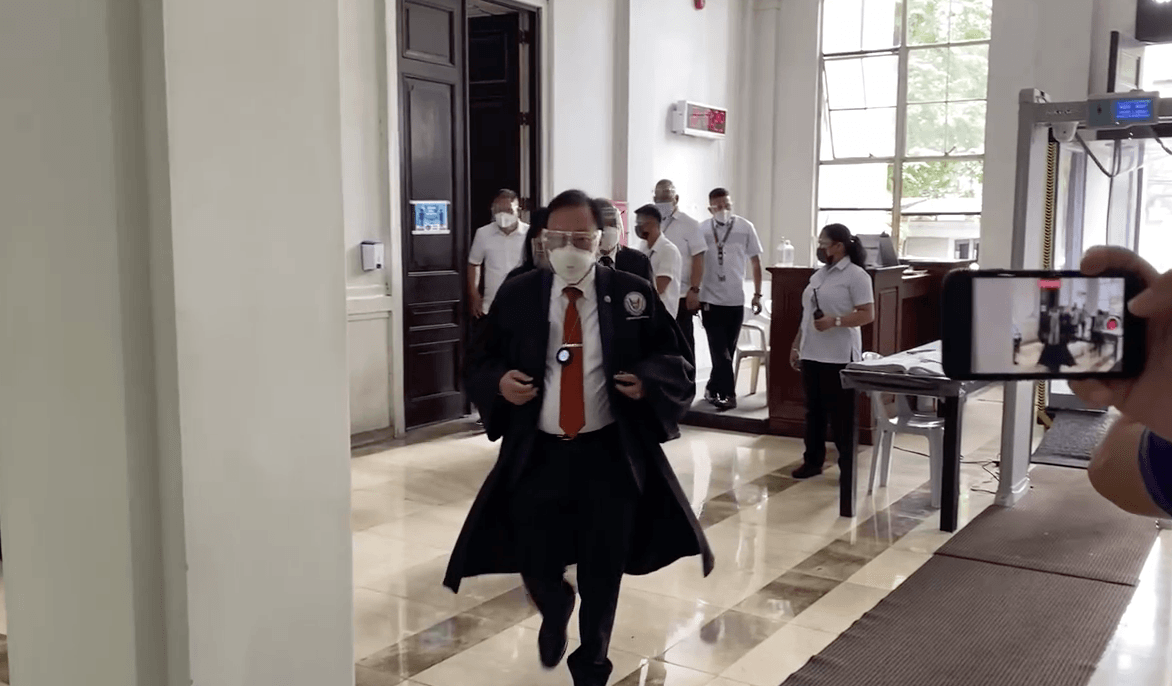

Solicitor General Jose Calida attempted to drop a bombshell at the start of Day 2 of anti-terror law oral arguments on Tuesday, February 9, submitting affidavits of two Aetas withdrawing their petition for intervention.
Calida called it a “supervening event that will affect the oral arguments and the resolution of this case,” but it was in effect rebuffed by the Supreme Court itself because it turned out the petition had been dismissed earlier that day when the justices held their en banc session.
“The petition for intervention has been unanimously denied by us this morning, so is there still a need for you to read all of those documents because we have already denied the petition for intervention?” Chief Justice Diosdado Peralta said, cutting Calida.
“If you still want to push through with what you want to manifest to us, I believe you can put that in writing so that the other party can comment later on,” Peralta said, and ordered the oral arguments to proceed as scheduled.
The National Union of Peoples’ Lawyers (NUPL) filed on February 2 a petition for intervention on behalf of Aetas Japer Gurung and Junior Ramos, pleading to join the 37 petitions against the anti-terror law. Gurung and Ramos are Aetas from Zambales jailed since August 2020, and are the first known case under the anti-terror law.
Calida said that the National Commission on Indigenous Peoples (NCIP) and Public Attorneys Office (PAO) Zambales chapters are now the lawyers of the Aetas, and that the two want to drop the petition.
Forced?
Calida submitted to the Court video clips, transcripts and affidavits of the Aetas, saying they were supposedly forced to sign NUPL’s petition for intervention.
Reading from the affidavits, Calida quoted the Aetas: “Binigyan po kami ng isang libo at hatiin daw po namin. Sinabihan pa nga ako na hindi ka ba naaawa sa abogada galing pa siya sa Manila para papirmahin ka lang. Aming inuurong ang petition for intervention na aming napirmahan sa kadahilanang hindi bukal sa aming puso ang pagpirma.”
(We were given P1000 and told to split it between the two of us. I was told to have consideration for the lawyer who traveled all the way from Manila just to make me sign. We are withdrawing our petition for intervention that we signed because we did not sign it wholeheartedly.)
The Aetas case is relevant because it may be the “actual case” that can address potential problems in the legal standing of the petitions. But petitioners have always maintained that the anti-terror law is ripe for a facial challenge. They are supported by jurisprudence that says free speech cases can be open to facial challenge, or challenge without an actual injury.
“It can be recalled during the last hearing, the honorable Justice (Marvic) Leonen asked whether the Court should wait for an actual case before it weighs in on the constitutionality of the law. The honorable Justice even hinted that maybe the Aetas case could provide an actual controversy to warrant this Court’s exercise of its power of judicial review,” said Calida.
That’s when Peralta cut the solicitor general, who has done earnest efforts to cancel the oral arguments using the coronavirus pandemic, saying an in-person hearing poses threat to their health.
NUPL chairperson Neri Colmenares made an immediate manifestation, asking why the Aetas were reached by NICP and PAO without them knowing.
“When the respondents talked to the petitioners, was there counsel at the time? Because it seems we are really unaware of this,” Colmenares said, expressing intent to respond to Calida’s written manifestation.
Peralta told him: “If (Calida) wants to pursue a motion, let us wait. If there is none, then you can sleep well.”
It was not immediately clear why the en banc dismissed the petition for intervention.
The NUPL later issued a statement maintaining that the Aetas “were not forced to sign.”
According to NUPL, their member Julian Oliva talked to the Aetas in jail “carefully, meticulously and clearly explaining to the two Aetas what the Petition-in-Intervention was all about.”
NUPL said the petition for intervention underwent “a long and tedious process.”
“There was no coercion, force, deceit, misrepresentation, favor or any other act or omission that vitiated the free, prior and informed consent of the Aetas to agree to the filing of the Petition-in-Intervention,” said the NUPL.
The NUPL said it was the NCIP and PAO who made “frequent visits and intercessions – persuading the Aetas to supposedly sever their relationship with NUPL.”
Calida had done this before and succeeded in the writ of kalikasan case filed by fishermen of Zambales and Palawan, represented by the Integrated Bar of the Philippines (IBP), essentially suing the Duterte government for alleged refusal to protect the West Philippine Sea.
Calida got the fishermen to withdraw the petitions. IBP withdrew it themselves soon after. – Rappler.com
Add a comment
How does this make you feel?


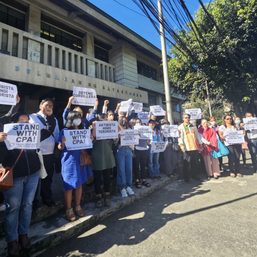
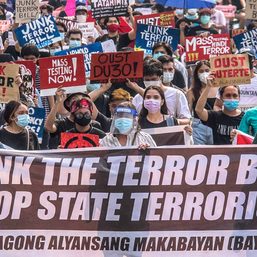
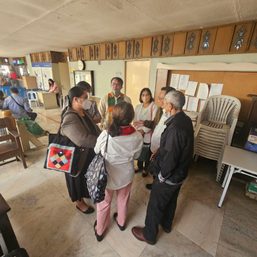
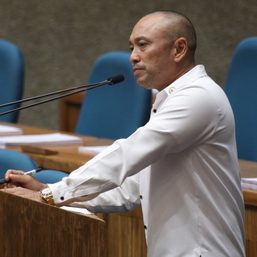





There are no comments yet. Add your comment to start the conversation.